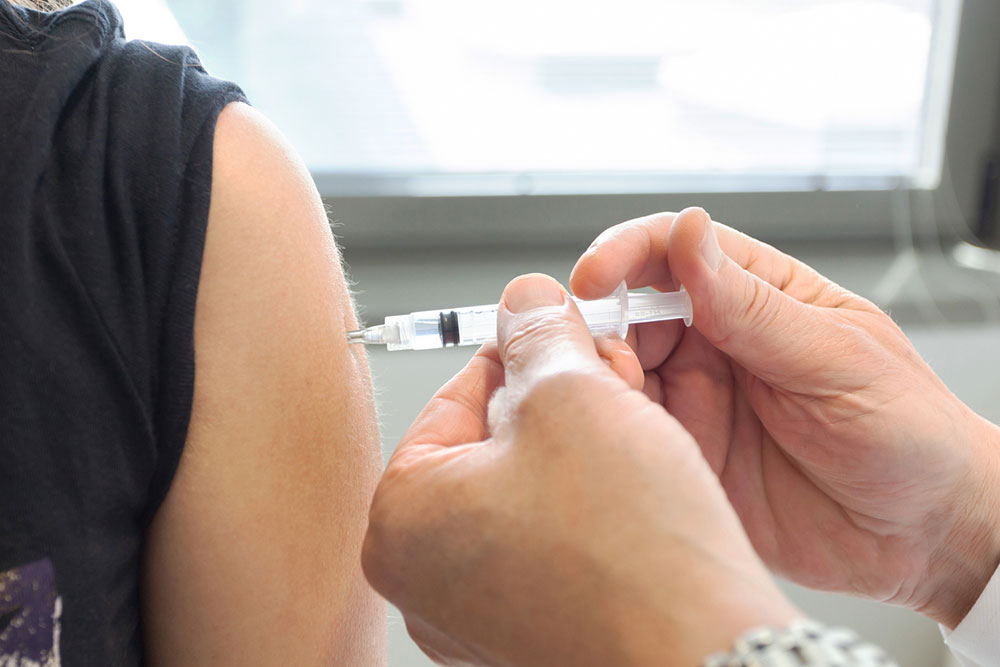A Guide to the Meningitis Vaccine
Immunization is the key to protection from critical diseases. Vaccinations during childhood and adulthood have brought down the high mortality rates caused by life-threatening illnesses. Meningococcal infection was one such dreaded disease that claimed the lives of many people. Thanks to meningitis vaccine shots, meningococcal disease is now preventable.
Although rare, meningococcal disease can cause grave conditions in teens and young adults. Once a person contracts this infection, it spreads rapidly, infecting the lining of the brain and spinal cord.

All you need to know about the meningitis vaccine
Meningococcal infection is not contagious like flu or cold, but the disease can spread through infected respiratory and throat secretions. An infected person can spread this infection by coughing or sneezing around others or by kissing them. Currently, three vaccines shots for meningitis are available in the country. None of these vaccines contain live bacterial cultures.
These vaccines essentially contain antigens that trigger the immune system to produce antibodies to fight the meningococcal disease. When the infection enters the body, the antibodies present in the immune system attack and kill the infectious bacteria. The three vaccines available for meningococcal disease are:
- Meningococcal polysaccharide vaccine (MPSV4)
- Meningococcal conjugate vaccine (MCV4)
- Serogroup B meningococcal vaccine (MenB)
The first two options in the list offer protection against four types of meningococcal infections. These infections make up 70% of the meningococcal infection cases in the country. Meanwhile, the MenB vaccine prevents meningococcal disease caused by the Meningococcal B strain of bacteria. The MCV4 vaccine is administered to people aged 55 and younger. Teenagers must receive two doses of this vaccine at ages 11 and 16. Health care professionals will administer this vaccine into the muscle. When the MCV4 is unavailable, MPSV4 can be administered under the skin.
MPSV4 is the only vaccine that is approved for people above the age of 55. The last in the list, MenB vaccine is recommended for people between the ages of 10-24, but it can be given to people above 24 as well.
People with allergic reactions to the vaccine must not take these meningitis vaccine shots. Pregnant women or nursing mothers should take the vaccine only after receiving approval from the gynecologist. You must ensure that you don’t have any illnesses before taking meningitis vaccine shots.
Why should you take meningitis shots?
Here is why you should vaccinate yourself against meningococcal infections:
- Prevention of meningococcal infection: The primary reason for taking vaccine shots is to prevent the development of meningococcal infections. Teens and young adults are at a higher risk of developing this infection. Doctors recommend that teenagers and young adults should get their immunization shots against this dangerous infection.
- Exposure to an outbreak of the disease: Taking meningococcal vaccine shots is a must for those exposed to the infection during an outbreak. This infection spreads through sneezing or coughing, so it is risky to be present in a place that is facing an outbreak of this disease. Vaccinating oneself is the best way to prevent contracting the infection.
Who should get the meningitis vaccine?
- Physicians and nurses: Physicians and nurses are exposed to a myriad of infections. So if you work as a physician or nurse, it is highly recommended that you vaccinate yourself against deadly diseases like meningitis.
- Working in countries where the risk of meningococcal infections is high: Meningococcal infections are highly prevalent in some countries. If you work in these countries or travel to them for business frequently, you must get yourself vaccinated.
- Frequent travelers: Those who travel frequently are susceptible to all kinds of infections, either during travel or at the places they visit. Thus, it is advisable that frequent travelers get vaccinated against meningococcal infections.
- Military personnel: Army personnel are always on-the-go and often work in challenging situations. It is advisable that they protect themselves against various infections through vaccination. Administering meningococcal vaccination while recruiting army personnel is the best safeguard against this infection.
- People whose spleen is damaged or removed need to get meningococcal vaccines too.
- Those with immune system disorders are more susceptible to contracting infections. Hence, protection from dangerous diseases like meningococcal meningitis is vital for such people.
As the awareness about meningitis vaccine shots is spreading across the country today, the number of meningococcal disease cases has come down drastically. However, one must get vaccinated after receiving approval from a licensed physician. The risk of contracting meningococcal meningitis is significantly lower after taking vaccine shots.

